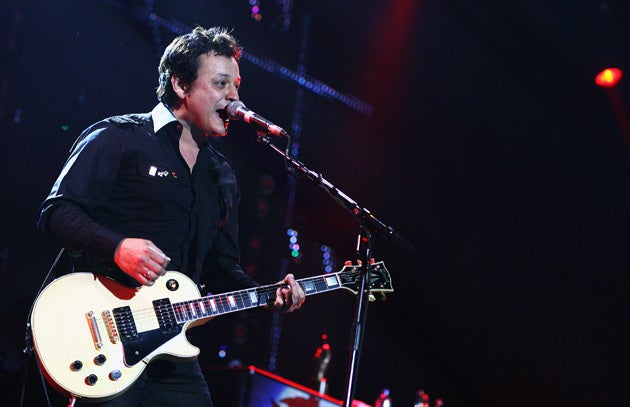Manic Street Preachers, Roundhouse, London
Reviewed by Nick Hasted

Your support helps us to tell the story
From reproductive rights to climate change to Big Tech, The Independent is on the ground when the story is developing. Whether it's investigating the financials of Elon Musk's pro-Trump PAC or producing our latest documentary, 'The A Word', which shines a light on the American women fighting for reproductive rights, we know how important it is to parse out the facts from the messaging.
At such a critical moment in US history, we need reporters on the ground. Your donation allows us to keep sending journalists to speak to both sides of the story.
The Independent is trusted by Americans across the entire political spectrum. And unlike many other quality news outlets, we choose not to lock Americans out of our reporting and analysis with paywalls. We believe quality journalism should be available to everyone, paid for by those who can afford it.
Your support makes all the difference."This part of the evening's been made possible by Mr Richard James Edwards," singer James Dean Bradfield simply observes. As the Manic Street Preachers play their new album, Journal for Plague Lovers, through, its lyricist, Richey Edwards, is represented by pink feather boas draped round a vacant mic-stand. Edwards has remained crucial to the band's story since he, in all probability, committed suicide in 1995. He hasn't been their conscience; the remaining trio are overloaded with that. But the Manics have always struggled to retain a link to who they were in the early 1990s: intellectual provocateurs, led out of south Wales by desperate punk dreams. Edwards's notebooks, handed to bassist Nicky Wire shortly before he vanished and the source of this album's words, restore that spirit in a somehow living collaboration.
It's a measure of the Manics' enduring commitment that Wire is touring with a prolapsed disc. He moves in undersea slow motion, more interesting than his usual wild spins. Journal sounds like optimal Manics: sharp, clattering tunes with crammed, culture-hungry verbal collisions. In the pretty troubadour strum of "She Bathed Herself in a Bath of Bleach", phrases such as "skin cancer" and "neon phobia" leap out. Wire steps to that vacant mic to sing "William's Last Words", a clear suicide poem that soothes: "I've been watching over you... you're the best friend I ever had... good night, sleep tight." No wonder Bradfield couldn't do it.
"Motorcycle Emptiness" starts a second half of hits. "All we want from you are the kicks you've given us," goes their most vaulting, widescreen anthem. The passionate roar back from the crowd shows that mutual bond is lifelong. More recent songs don't suffer. "Australia", which helped take them on to the supermarket shelves their new album's sleeve is banned from, has choruses streamlined till they squeak yet beats with the old heart. The keyboard washes of "If You Tolerate This Your Children Will Be Next" can't sweep away the anti-fascist truths they rammed to No 1 in 1998. "We know the meaning of love, and we do love you," Bradfield simply says to some of rock's most faithful fans before "A Design for Life", and lets them take a word-packed and perfect verse. The song couldn't be bigger, and in the wake of Edwards's death gave them the subversive pop impact he dreamt of. None of that feels lost tonight.
Join our commenting forum
Join thought-provoking conversations, follow other Independent readers and see their replies
Comments